LaMonica Garrett is Doing it for the Black Cowboys (And His Mom)

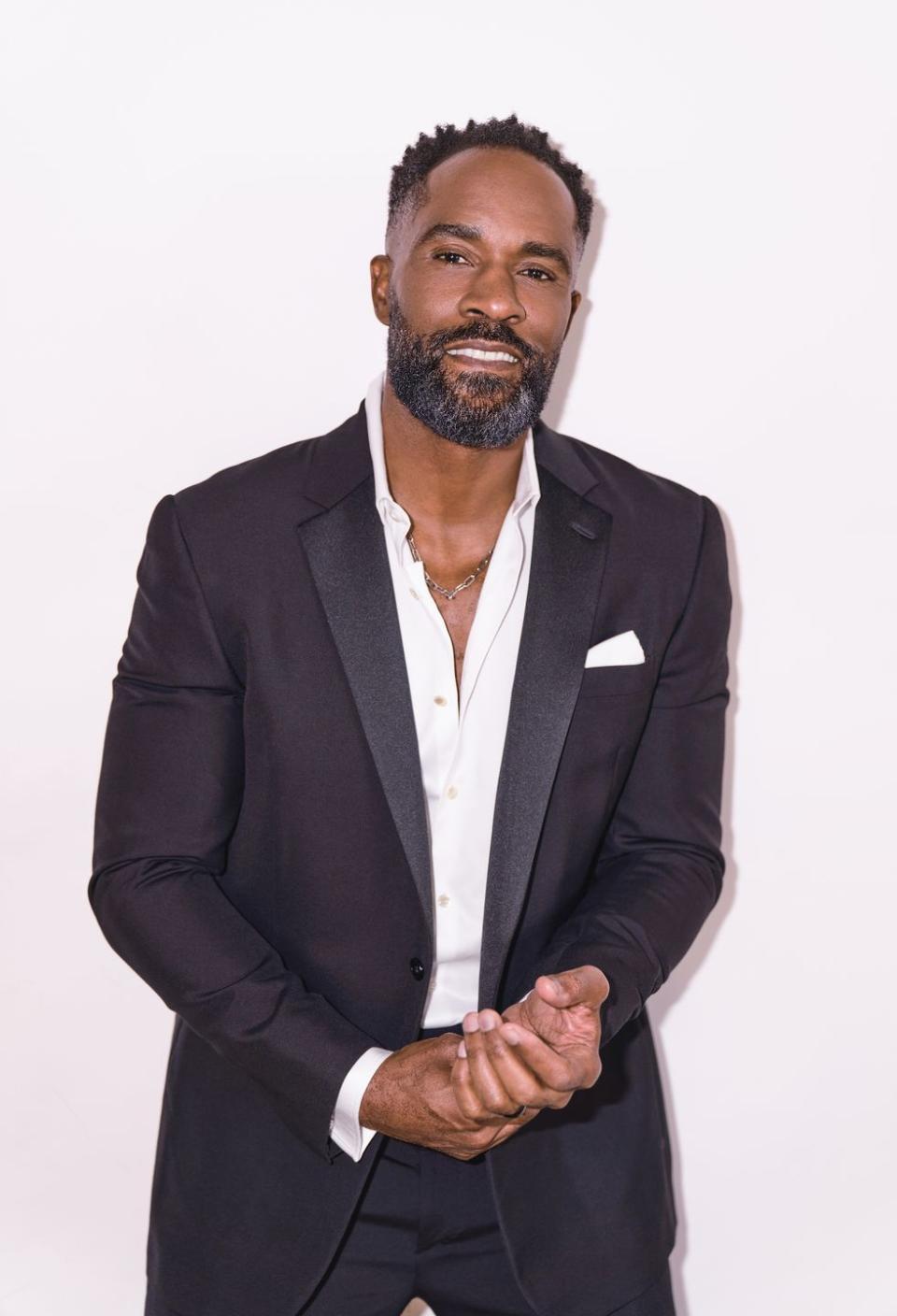
Years before LaMonica Garrett ever considered saddling up a horse, on one particularly dramatic day, he slammed a man through a plate glass window. The occasion marked the last time that Nathan Scott ever played Slamball, the early 2000s sport that combined basketball, football, and trampolining into one baffling game. Of course, Nathan Scott is not a real person—just a made up character on a little teen show called One Tree Hill—but Garrett, who portrayed him, is very much a real person who really did play Slamball. In fact, Garrett was, at the fad’s height, the league’s leading scorer. But when the CW drama called for actors to play Slamball, he jumped at the opportunity. The then struggling, on-screen hopeful landed his first notable gig, bodychecked a fictional man out of a career, and had a realization: “Just being around those guys and being in front of the camera, and just seeing how it all works, from the other side, I'm like, Man, this is what I need to be doing."
So, really, two people ended their Slamball careers that day.
Fast forward some 15 years, and Garrett is starring beside Sam Elliott, Faith Hill, and Tim McGraw in Yellowstone creator Taylor Sheridan’s other western hit 1883. He plays Thomas, a Civil War vet-turned-cowboy who is helping lead immigrants west in hope of a better life. A Black man in the late 19th century, he escaped slavery, survived the war, and still chose to embark on the hellish ordeal of navigating the American wilderness. In other words, the man has seen some shit. And much like that day playing Slamball on the set of One Tree Hill, Garrett’s time with Thomas has unlocked another piece of his journey.
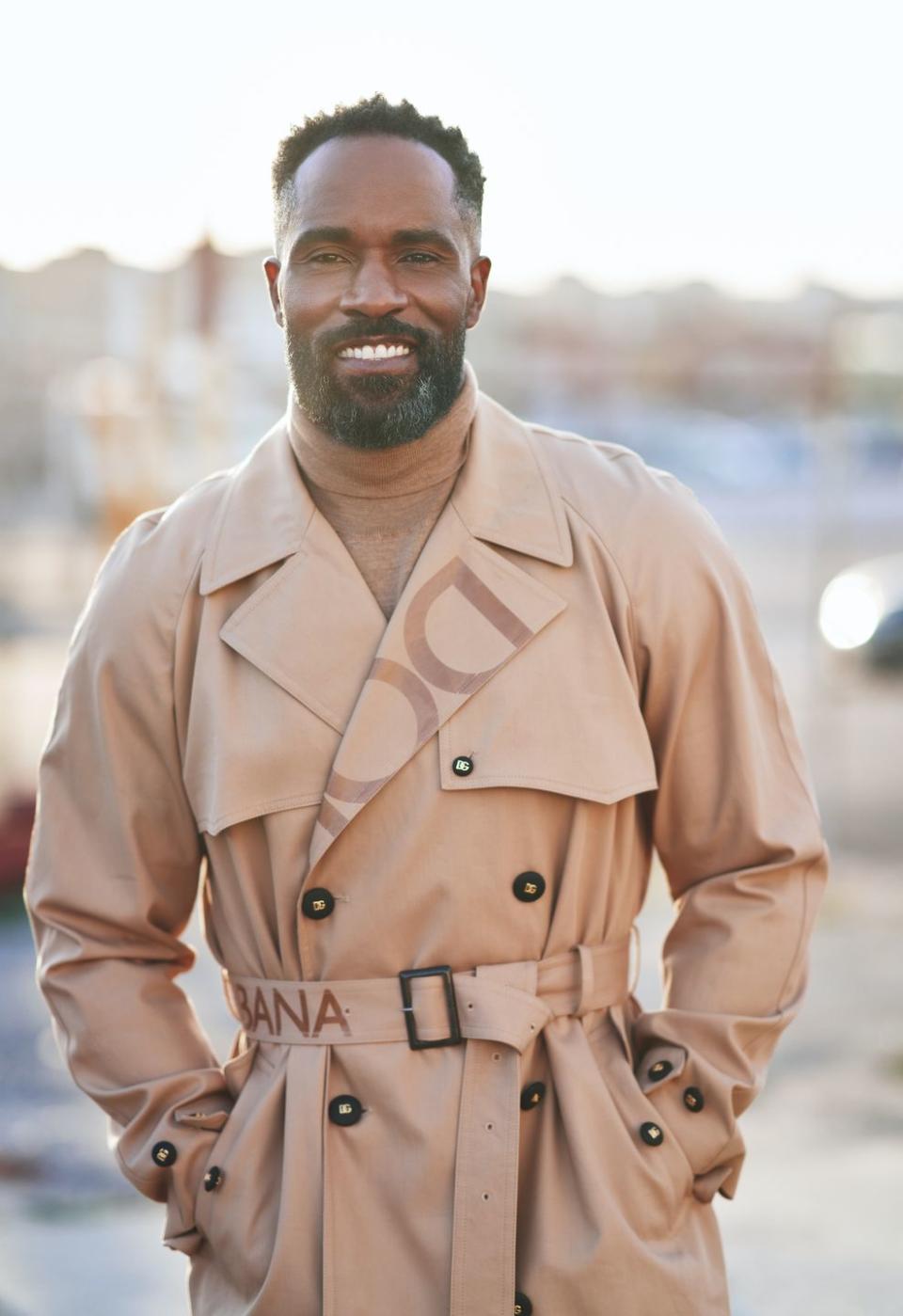
Over a video call in February, the actor, 46, is stripped of his Civil War garb, instead wearing a simple T-shirt. Palpably excited, Garrett is explaining to me how the Slamball chapter in his story evolved into this acting gig he’s got now. Hustling out in Los Angeles as a FedEx driver and part-time extreme athlete, the goal was always to wind up on the acting side of Hollywood, but that’s a hard transition to make—especially when you’re really good at knocking the bejesus out of people on a trampoline. “It was the most fun I've ever had doing anything, and I've done a lot of fun stuff, but it's a young man's game,” Garrett says, laughing.

Garrett might have dodged “a young man’s game,” but he traded it in for something that’s, arguably, just as physically demanding. He’s played brawny FBI agents and buff sheriffs, and now a cowboy. This role, he says, stands out. “This was harder than Slamball,” he says. “You're riding horses, and I wasn't familiar with riding horses. You're pushing cattle. You're pushing mustangs. You're in the elements. Everything was designed for you to fail on this show. And you push through it.” Before filming began, Garrett and his co-stars went down to Texas to participate in what he calls “cowboy camp,” which is like a crash course in being a rancher: shooting, riding, wrangling. It’s a blast until day three or four hits and those 110 degree days really start kicking your ass, he adds.
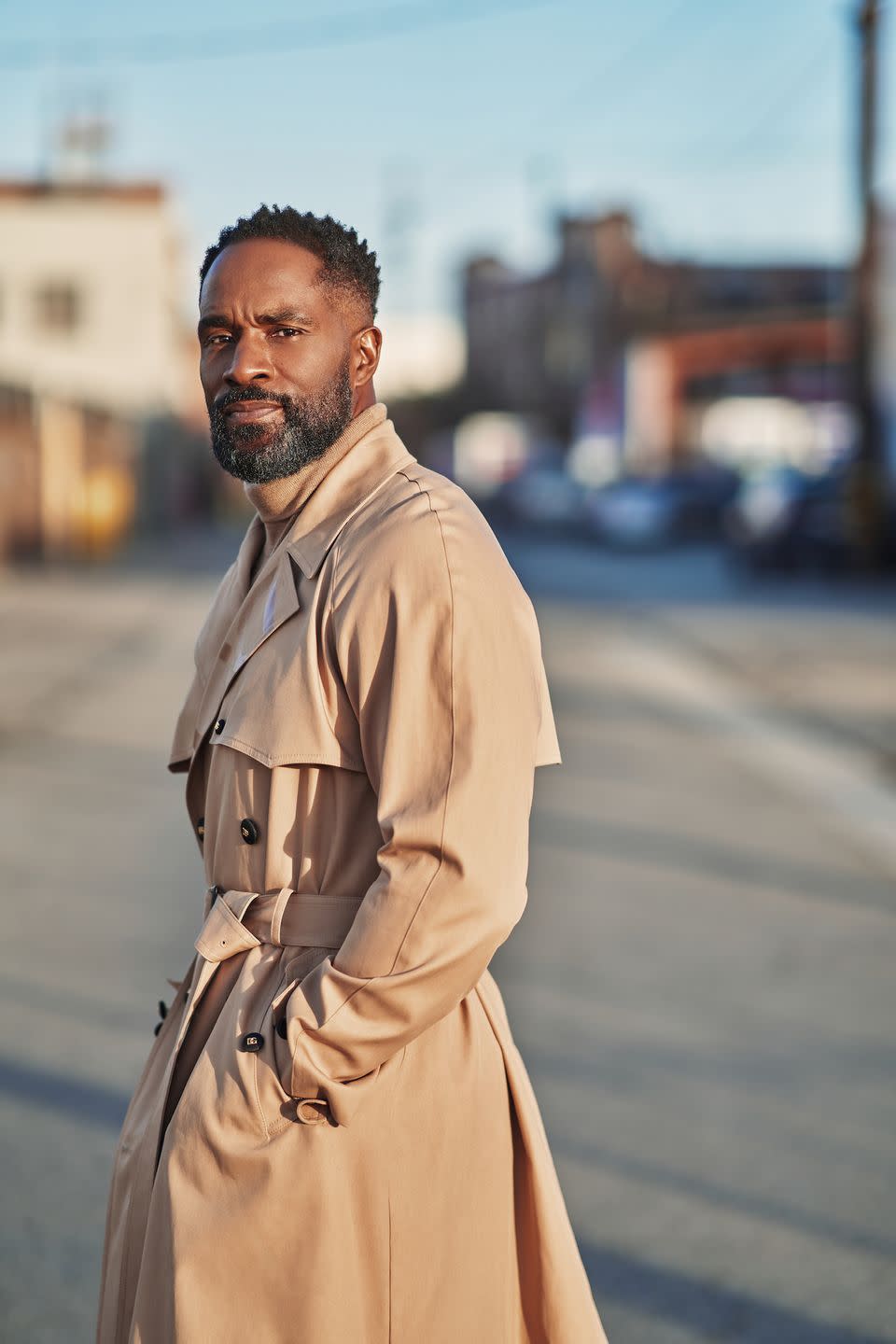
The role that Sheridan put Garrett in is vital, with the potential to change the genre forever. As any western lover knows, there are three conflicts to any good cowboy story: man versus man, man versus nature, and man versus himself. That often leads to grisly, gunslinging leads. But Thomas is different, and he's emerged as the heart of 1883, despite having one of the more gruesome backgrounds of any character. “I think that he's seen the worst in man. He left home or he left the plantation when he was 12 years old,” Garrett says of his character. “And I'm sure he's seen the worst in people. But Thomas… he sees kindness in people that other people might not see. And he has that optimism, because if you don't, why not just go dig a hole and go lay in it?”
A lot of that kindness in Thomas’ life can be traced back to the friendship he’s developed with Shea Brennan (Elliott). That tight relationship on the page has translated well to real life, too, it seems. From day one at cowboy camp, Elliott was an inspiration to Garrett. “He's 77 years old, and he's out there not complaining. It's hot. It's cold. This dude's an icon in Hollywood,” Garrett gushes. “He's a western icon. He just... Yeah.” All he can think to say next is, “I'm going to his house Saturday.”
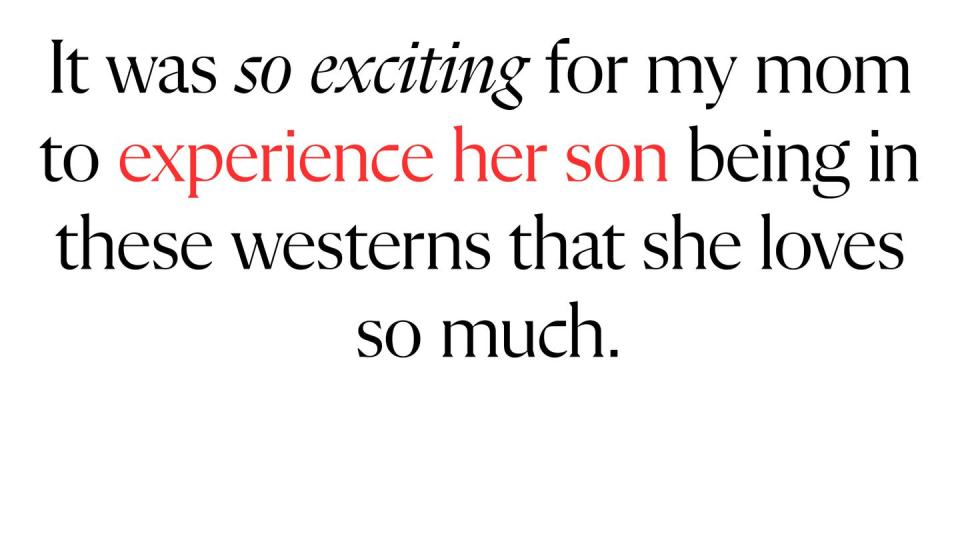
In the series, Elliott’s Shea Brennan once served as Thomas’s captain in the war, and just like their characters, Garrett and Elliott became real close, real quick. “LaMonica and I struck a chord right off,” Elliott told me in January. “I met LaMonica on a gun range when I first got down there to Texas. I knew his work, but I never crossed paths with him before, but we've become very close. I'd say we love each other.”
Chemistry between Shea and Thomas was of the utmost importance. They had to sell their relationship, because despite its very real, real-life history, it's an uncommon one to see on screen in the format. The western canon is notoriously white, ignoring a vital part of American history—one where Black men represented about 1 in 4 cowboys—and Sheridan wanted his show to reflect how utterly normal this would be. “I love how Taylor didn't write anything about Thomas's background, or his slavery. It was just these two guys—these two guys that just became brothers," says Garrett. "One happens to be white and one happens to be Black, and that's just what it is.”
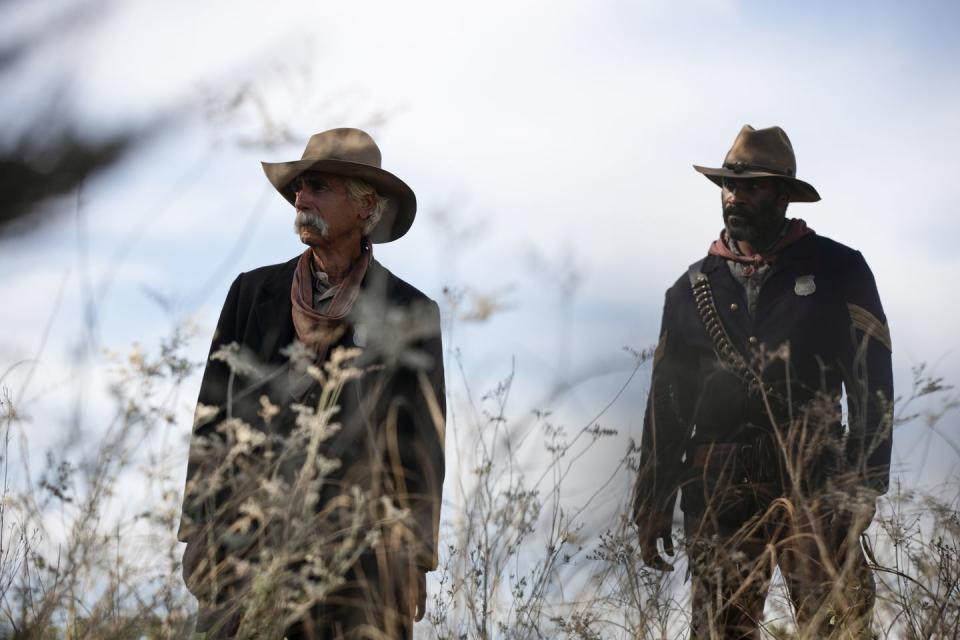
For some viewers, it’s the first time they’ve seen a dynamic like that play out within the familiar American movie framework. One that, as it turns out, some viewers weren’t ready for. “You read the comments,” he says, shaking his head. “People saying, ‘Oh, the show was amazing… I love it. The only thing I'm not buying is the Black cowboy. I guess they want to put him in for diversity. I'm not buying he would talk to white people in this tone. I'm not buying that he would have this authority and carry himself like that. He should be more subservient.'"
No one has ever won an argument in the comments section. Those are the rules of the internet, and Garrett knows it. Instead, he uses the misguided criticism as inspiration. His Twitter feed is now a long thread of black and white images of Black cowboys, pioneers, and frontiersmen. He goes on a run about a man named George McJunkin, a Black man who has gone largely unsung after discovering a bison bone that upended long-held theories about prehistoric life in America. Garrett's collected dozens of these stories, cycling through them every few days on social media. “Instead of responding individually, if you want to do some research, come to my page,” Garrett says. “And you could see that these men existed, and Thomas is just one of them.”

As he goes through his list of highlights, we both agree that stories like Mary Fields and George McJunkin and William Cathay would make pretty good movies and shows. They would also be a respite from the archetypal slave narrative that Black characters have almost exclusively occupied previously in the genre: tortured, traumatic, sometimes to the point of gore. Yes, it’s historical, but stories like those lack the agency and authority and certainly the joy that Black historical figures would've experienced at times. All struggle, but no context. “In television and film period, we, for African Americans, it goes from slavery—The Color Purple, all those—and then it jumps to the civil rights era with Martin Luther King and Malcolm X, Medgar Evers," says Garrett. "But that 100 year gap in between, it's like we fell off the face of the earth.”
That century-long gap speaks to an issue that seems to be gurgling over the brim of American culture right now. One where we refuse history. “I read today, this morning, in Indiana, there's a counselor that told their students' parents they can opt out of Black History Month,” Garrett says. “What are we doing? It's history. It's American history. It's not just Black history, but it's things that led up to modern day... Things we use today. It's just history.”
I ask Garrett how he came to love and embrace a genre that’s so whitewashed. That’s on mom, he says, who raised him on Bonanza and Gunsmoke and Little House on the Prairie. She’s the aficionado. And for him, he didn't notice the problem specifically within westerns because there wasn't much of entertainment doing it any other way. “You didn't really realize, me growing up, that there were no Black people in these westerns, because I wasn't used to seeing him in other genres as well, you know?”

So, all these years later, even after stints on Designated Survivor and Sons of Anarchy, 1883 was especially important—he had one major critic to impress. “It was so exciting for my mom to experience her son being in these westerns that she loves so much,” he says with a smile. “I brought my parents out to the premier. I've never brought them to a premier of anything I've ever done, and she was just blown away watching it on the big screen.”
He explains that this world of 1883 is an opportunity to see a genre through “different goggles,” be it the perspective of Thomas or fellow lead and cowgirl Isabel May or Thomas’s love interest, an Eastern European woman played by Gratiela Brancusi. “We're learning information that we never knew before. And it sucks that most of us get our information and our history from TV and film,” he says. “We don't read as much as we should. If you're going to get it from television and film, let's tell some truthful history here, so you take something back with you that's authentic and real.”
As the first season of 1883 concludes and the unit continues to move toward Oregon, Garrett is excited about what’s to come for Thomas. Maybe a bit more backstory to see how he ended up with Shea. Or a further blossoming relationship with Brancusi’s character, though Garrett is insistent that Thomas has a lot of learning left to do when it comes to women. After 15 years of working in the business, this is where he wants to be. “I love full-body acting, and that's why I love the fact that in westerns, you're on a horse. You're juggling a lot of balls,” he says, mimicking a bit of juggling. “It's not standing in a courtroom and saying a lot of words, being still. I can speak well, and I can remember monologues, but I love action.”

If the opportunity presented itself, he’d like to venture into the world of sci-fi and comics (He also mentions: if the opportunity to play Green Lantern/John Stewart presents itself, he’s ready for the call. Seriously. Please). His office is covered in memorabilia, and hell, he manifested a starring role about a Black cowboy who isn’t actively being tortured (or at least any worse than any other character). Why not Green Lantern? In the interim, it’s all about 1883.

“I got some cowboy in me now. I go to Texas with my Jordans on and a hoodie, and I came back with boots and a Stetson hat,” he says, completely serious as he explains that this is his go-to look for date nights now. (TBD on how the wife feels about that.) “I look at myself and this small community of Black actors that have played Black cowboys on some of these movies and TV shows; it's a small community, and I'm a part of that now.”
The stories are there for more. Now it’s about finding out who is going to tell them.
Photography: The Riker Brothers
Styling: Jenny Ricker
Grooming: Red
You Might Also Like

